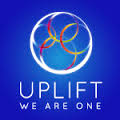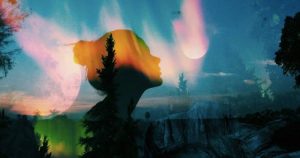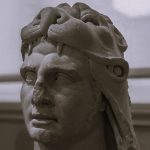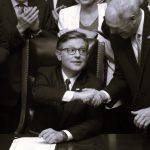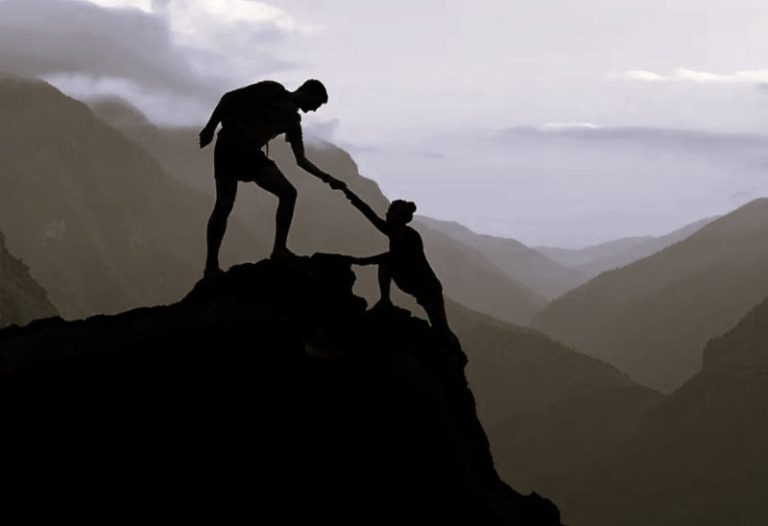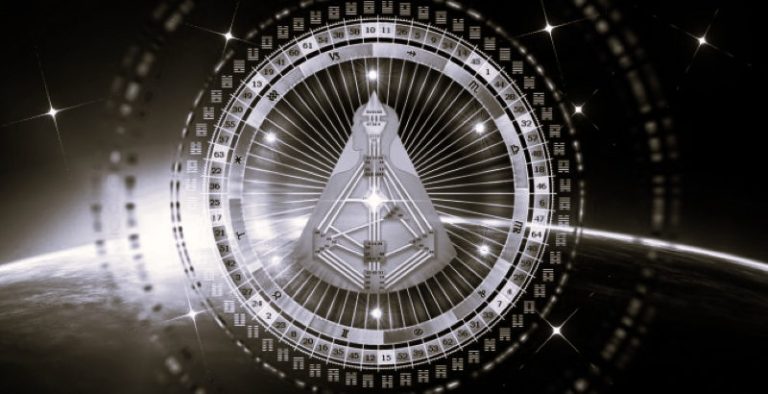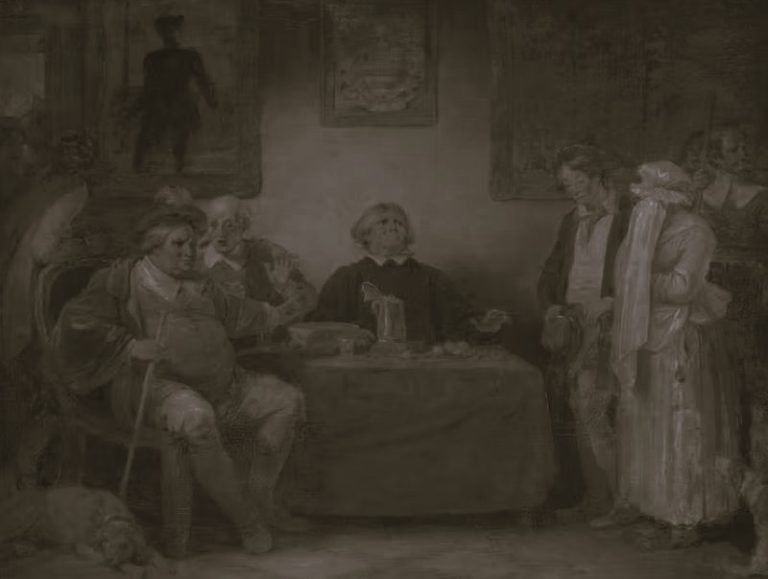By Anneloes Smitsman / 06.24.2017
Human Identity and Tribal Consciousness
Psychiatrist, Carl Jung, founder of the School of Analytical Psychology, once said:
One does not become enlightened by imagining figures of light, but by making the darkness conscious.
To better understand this process, it may be helpful to consider the development of modern ego perception and identity from an evolutionary perspective.
Long ago we mostly developed our individual consciousness via the collective consciousness of the tribe. The tribe determined one’s place, identity and belonging in most cases. In many pre-modern cultures, there was no concept of an individual self, separate from the tribe, and in some of the indigenous languages, the word ‘I’ did not even exist. Our identity formed at the group level as an interdependent network of relationships that included the natural world as family. Our sense of belonging and purpose was thus deeply embedded within this collective context, from where our sense of self-emerged as an integral part of Nature’s living systems and the larger Universe.
Aboriginal Elder, Uncle Bob Randall, expresses this beautifully. He describes the tribal consciousness of Nature as family and ‘ours-ness’ as compared to modern civilisation’s conceptions of ownership, separation, compartmentalisation and ‘mine-ness.’
The land grows all of us up, it really does. The land owns us, it’s the ancient one, not us. We’re the children who come and go, take what we need for a short time and then pass to our children…The oursness stretches from horizon to horizon, the clouds are the ceiling at daytime and the stars at night. To that size of “you” and what you’re responsible for, to shrink down to this little box, of my house, my car…It’s so small in comparison to what’s ours. And you’re part of that oursness, and you feel that, feel that so well. You feel good when you’re in that space. Feel like you’re living with family. When you include everything that’s alive in that space, then you grow up knowing, believing and accepting that these are all your family. You can never feel alone in that situation. ~ Bob Randall
Clearly, over time, ‘civilized’ people’s relationship with the natural environment changed. By the invention of new tools and technologies, modern people became more skilled in adapting the natural world to their needs and desires. This also altered the way we perceived our place and purpose within the larger networks of our natural world. It is said that the rise of individuation (as a contrasting expression to tribal consciousness) was driven, to a large extent, by our technological advancements. If ego is an expression of asserting our ‘individual’ self over our collective self, we can thus see how the development of ego perception is coupled to our technological developments and post-tribal worldviews.
These technological developments primarily served civilisation’s growing political-economic model that was extractive and hierarchical rather than regenerative and ecological. It was not technology itself that increased our ego development. Rather, it was the way in which we used these technologies (and new institutions) as a means to control the natural environment (and other people), to serve human needs and desires, decoupled from the good of the whole.
By those who favoured and promoted this control over our natural environment, tribal consciousness was often seen as restrictive and inferior. This created a growing tension between what was perceived as ‘the freedom of the individual’ and the natural archetypes and growth dynamics of the ‘tribal collective consciousness’. Ego perception as the catalyst for individualisation, driven by a mechanistic and compartmentalized worldview, grew further through this tension.
The way in which we use new technologies is what increases our ego development.
Believing itself to be separate from the tribe, Nature and the Universe, ego needed contrast in order to create a sense of itself as special, important and different. To achieve this contrast, it also needed to change the relationship of the individual with the group to which it had previously belonged. From this development, ego-centric social status and rank hierarchies developed.
Those who now positioned themselves above and apart of the group became the new elite. This new elite pursued their superiority by dominating (and sometimes eradicating) those who it perceived as less ‘civilised’ or a threat to its politics of status, superiority and differentness. This view provides another perspective to the waves of colonisation and brutal domination over indigenous people around the world that followed.
As civilisation’s political-economic systems of superiority and domination over nature succeeded to achieve its agenda, it further reinforced the perception of this ‘collective’ of individualized egos that it is right and others are wrong. This same ego perception offered all kinds of so-called ‘new freedoms’, which were in stark contrast with those who saw themselves as embedded within an interconnected and interdependent world. Ego’s polarized and illusory perceptions of freedom were based on control; the means to exert oneself over others — humans over nature, men over women, kings over peasants, peasants over slaves, civilized over primitive, etc. It would take centuries before we started to see the impacts of these belief systems.
Now that we have reached the limits of technologically advanced civilisation’s unsustainability, and not just environmentally, more people are starting to see the consequences of these earlier ego-based worldviews. Realising that freedom can never be achieved by denying others’ rights or attempting to dominate over nature, we are slowly awakening to a more embedded and interdependent sense of Self-identity. In this process, we are also regaining some of our earlier tribal consciousness, now presented through the Indigenous Wisdoms that managed to survive the harm and violence of colonialism.
Recognising Ego Tendencies in Ourselves
Within the field of our shared cultural consciousness, each of these earlier stages of our evolved developmental processes is part of our collective historical memory systems. While we may believe we are truly unique, and our perception of the world is different from others, it can be useful to realise that billions of others have held similar perceptions about their uniqueness. When we can embrace our ‘uniqueness’ as an expression of Nature’s wholeness, or ‘ourness’ as Elder Bob Randall mentioned, our authentic natural self-expression can come forth.
The elite use domination to assert and maintain their superiority.
From an evolutionary perspective, ego perception is formed by a limited and fragmented view of what Life is and how it unfolds. It rises when we ignore our underlying wholeness. Accordingly, ego is a false and manufactured state of consciousness in us that only perceives reality from one particular point of view. It does not integrate or acknowledge complimentary views or its oneness with Nature. This compartmentalization of perception sends misleading information to our thoughts and feelings, and gives rise to dynamics such as ‘me vs you’ and ‘us vs them.’
This polarization and delusion can lead to conflicts and tensions in our relationships, which further reinforces the ego by believing that we can find happiness in pursuits of pleasure, safety (in separateness), violence and control. If such tensions and tendencies to polarise take place in your life and relationships, it can be useful to explore where false ego tendencies may be directing your perception and influencing your thoughts and feelings about yourself and others.
The Shadow Side of the Modern Ego
Becoming more aware of the shadows cast by our ego requires a strengthening in Self-love (and feelings of connectedness) to ensure that the Flame of Truth does not burn us in a painful way. Ego and its shadow dynamics can only operate where there is inner division; when we believe ourselves to be separate from Nature, the Universe and others.
Inner division can play out as a tension between ‘what we desire and really want’ and ‘what we do’ that negates our natural love and wholeness. It can also play out as a contradiction when we present ourselves to others in a way that elevates our ego identity and suppresses our universal authenticity. Or as an inner conflict between what we truly feel and how we override those feelings with our egoic thoughts and social codes. Whatever the cause for our inner divisions, it is in this tension that our ego dynamics can rise and develop and sow chaos and unhappiness in our lives.
Behaviour that elevates our ego creates inner division. Just be authentic.
Until we become grounded in a sense of ‘oursness’ and ‘wholeness’, becoming aware of such inner divisions is not a comfortable process. Hence our ego will devise all kinds of ways to divert us from the discomfort of our growing pains. A more in-depth self-honesty is important to uncover the dynamics of our ego, balanced with love and compassion or else we become wounded (and wound others), by what we may discover.
If parts of ourselves have been moved into the unconscious and are hiding in the dark, there is usually pain involved that, for whatever reasons, we were not able to embrace and heal. The healing of such pain requires gentleness, patience, love and trust.
Shadow is blocked light that became fragmented and divided because of the false beliefs civilised cultures have handed down to us across the ages. These cloaked and masked expressions of our ego are actually suppressed growth potentials. The effect of blocked light is that it tends to sabotage itself whilst blocking the light and whole expression of others.
We need to pay attention when there is a lot of interference, distraction, roundabouts, detours, sabotage and unnecessary difficulties in our lives. Quite often this reveals a blocking dynamic in disguise, that can only be healed by awareness of our intrinsic light, love and wholeness.
Becoming aware of inner divisions is uncomfortable, therefore our egos try to divert us.
Shadow dynamics cannot operate in a vacuum; they manifest in social relationships and within the unconscious expressions of our lives. Remember that ego does not have inherent existence; it arises as a result of stretching away from and denying our inner wholeness. It is a distorted and fragmented perception, giving rise to all kinds of projections.
Ego and its shadow dynamics work in similar ways as a virus. A virus cannot exist without a host and uses the DNA of its host to replicate itself by taking over the communication system of the body. Shadow dynamics works in similar ways; disguising and diverting attention away from the solutions that will restore our awareness and direct access with the Unified Field of Consciousness.
From a Jungian perspective, shadow uses that part of our intelligence that is not yet actualized in wisdom. Ego has clever ways of masking its true identity and purpose. It may create the illusion that we are fully conscious, and thus have no more shadow lessons to address. Just knowing about (recognizing) our shadow does not make it go away. And the desire for it to go away is, in itself, a sign it is there. Actualised wisdom does not behave that way.
Living authentically and connecting with Mother Earth develops our innate wisdom.
The best practice, therefore, of unmasking the shadow dynamics of our ego is by actualizing our wisdom nature, which is an expression of Mother Earth and this beautiful Universe that supports us. To actualize our wisdom, nature does not require difficult practices or complex theories. It is a process of showing up for what matters, connecting with Mother Earth, being as authentic as you can be, and giving yourself permission to be ‘a work in progress’. None of us are perfect, and perfection is not required to generate Love. All that is required is humility, gratitude and an open heart.
Remember, our ego is our wisdom in reverse. Its purpose is to benefit this false self-perception, rather than the greater whole. It generates small mindedness rather than big-heartedness. Don’t get lost in the mental imagery and false patterns it generates. Look deeper into the direction from where you can reverse back the track to your authentic Self, an expression of Nature’s beauty, wisdom, wholeness and love. Know you are never alone. As Uncle Bob has said:
Our purpose is to relate well to every other living thing as family.
Celebrate your life on this planet!



